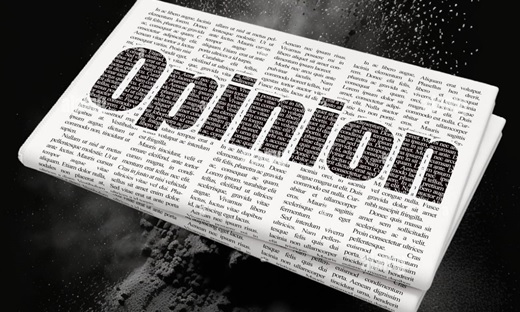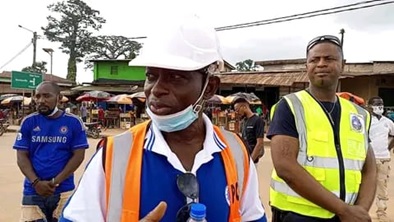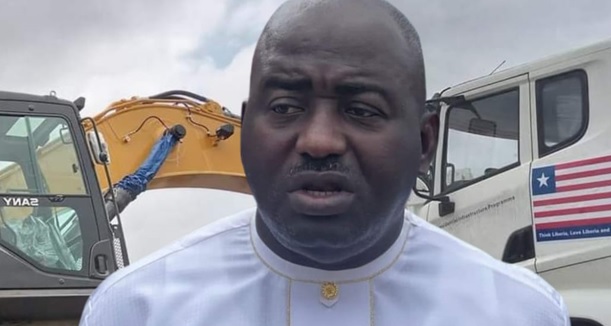A Patriot’s Diary
With Ekena Wesley
What manner of Liberian progressives are there? What manner of Liberian progressives are we? Is the struggle against poverty done? Has the fight against injustices fizzled? Are slum communities that became the bastion of progressive struggle now somewhat liberated? Has the fight against poverty been won? Are experiencing the equal distribution of the national wealth? Are the masses freed? Can we say freedom is reigning in Clara tow, West Point, Doe Community, New Kru Town, Duala, et al?
For nearly 150 years a semi-monarchy or perhaps a hegemonic dynasty presided over the small West African nation. Amid blatant inequalities, rampant corruption and cronyism- we saw a justified rise of progressive forces in the early 70s. Prior to that – the likes of Dweho Twe, Raymond Horace, Albert Porte et al were either forced into submission or oblivion by William V.S. Tubman’s autocracy. Tubman knew and understood the Liberia he was dealing with at the time though.
The timely and radical advent of progressive forces became widely welcomed by the mass of the population. But did they people understand what they were up to? Your guess would be as good as anyone. Lest we forget, the masses’ actions and inactions come with consequences. they are bound to face them anyway. This was so because they bore and continue to bear the brunt of the uneven and unequal distribution of the national wealth.
Carved under the aegis of the Movement for Justice in Africa (MOJA) and Progressive Alliance of Liberia (PAL) nomenclature, both forces attacked the then True Whig Party (TWP) ruling hegemony with vociferous vehemence amid the enslaved trappings of the broad mass of the people. MOJA and PAL were trumpeting the cause for greater inclusion and participation. across the broad spectrum.
Yes indeed the True Whig Party establishment was the common political enemy. Power was concentrated in the hands of so few. Whether we like it or not – power will always be concentrated in the hands of a few. the dictates of the democracy we clamor though. The elected representatives of the people are supposed to articulate the people’s aspirations after all. Do they? Good question! There will always be another time to vote them out! The True Whig Party risked political dethronement because the progressive elements focused on mass education as a source of enlightenment. They had come to fill in the knowledge gap to empower the masses the self-awareness and consciousness. The progressive forces were biblically simply fulfilling the scriptures- “For the lack of knowledge, my people would perish.”
Whatever the ideological differences between progressive elements became a propaganda tool for naysayers who refused to appreciate the bigger picture. However, such is our inclined human complexity. Wittingly, no two individuals or groups are bound to perceive anything from a similar perspective. Indeed a critical reflection of the cogency of our diversity and individuality. But there were those who chose to use whatever the minor disagreement to exploit the situation as it were.
Somehow, a brutal military intrusion truncated the progressive struggle. Mind you the coup d’etat was borne out of the consciousness as inspired by progressive activities throughout the 70s. The coup that later co-opted progressive elements was largely a distraction, which to some extent paralyzed the struggle for rice and rights and the upliftment of the masses from the claws of poverty, wanton abuse, corruption and bad governance.
Progressive forces soon became caught between rival factions of coupmakers thus forcing some of them into exile. But the struggle was never over. MOJA’s main constituency – was rooted in UL-based students- who invariably as the microcosm of the society- remained resolute in challenging the coup makers and their excesses.
The students’ radical actions in the form of recurrent protests against autocratic rule culminating in running battles with draconian state security forces, that often landed student leaders in prison variously. Such became the prize for greater freedom.
As exiled progressive leaders reckoned options for increased struggle to effect change in the motherland, the military’s coerced clench onto power seemed unabated. In a dubiously organized general and presidential election, progressive-inspired Liberian People’s Party (LPP) and the United People’s Party (UPP) led by Dr. Amos C. Sawyer and Gabriel Baccus Matthews were summarily banned for what the military called “Socialist ideas.”
The perplexed fallout and controversial outcome of the junta-led massively rigged general and presidential elections of 1985 led to full-scale war ignited December 24, 1989 by rebel forces under the banner of the National Patriotic Front of Liberia (NPFL) led by now incarcerated former President Charles Taylor.
A non-cohesive progressive alliance of Liberia’s 1997 ECOWAS-backed hastily arranged elections saw Taylor emerge winner owing to electoral manipulation and chicanery.
In the 2005 post-conflict elections, Liberia dismally witnessed an unprecedented split within the ranks of progressive forces again after a hopeless attempt to participate in the 2005 polls amid utter repudiation by the electorates. Progressive leaders separately threw their weight behind former Finance Minister, Ellen Johnson Sirleaf and former World Best, George Manneh Weah – who were set for a runoff. Madam Ellen Johnson Sirleaf became the victor following the runoff.
Madam Sirleaf’s victory saw the incorporation of a number of progressive elements in her government while those who supported George Weah were left in the wilderness although the likes of Milton Teahjay later found his way as Sinoe County’s turbulent superintendent after sycophantically establishing himself.
After nearly half of a century of unabated struggle against poverty and sheer injustices meted out to the masses, could we say progressive forces have become lost in translation?
The struggle vehemently waged by progressive forebears has by and large created mass consciousness amongst the people. Progressive forebears set the tune for their followers to build upon. There was unarguably no transition plan across the leadership fronts of both MOJA and PAL. MOJA and PAL forebears wanted to be leaders forever! They were mistaken! South Africa-based, African National Congress (ANC) is an excellent example of preparing young brigades for leadership. Even Ghana’s New Patriotic party and National Democratic Congress offer exemplary solutions for political transition that gives hope to young and enterprising political foot-soldiers. Some progressive leaders just didn’t know when to call it quit. They even failed dismally to lead by example let alone lay the basis for transition.
Like the former East Timorese pro-independence leader, Kay Xanana Gusmao said: ” It is not all those that lead a revolution that make good leaders. It is important to understand one’s role in a struggle as a leader.” Not many progressive elements in the small West African nation ever came to such realisation.
While the struggle remains unabated, it will take an entirely new breed of truly patriotic and revolutionary leaders to ultimately wage a struggle for the greater good if indeed change is bound to come. The struggle must continue unabated! But cannot be with a bunch of selfish, unpatriotic and sycophantic elements pretending to be progressive leaders.







